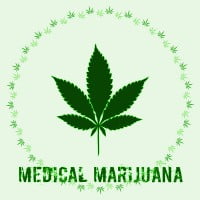After a long wait, Minnesota patients with intractable pain are now able to access medical cannabis; bringing much needed relief.
The adding of intractable pain has been a hard fought battle, one that looked to be lost at one point. In November last year, an eight-member panel appointed by Minnesota’s Department of Health’s Office of Medical Cannabis (OMC) rejected the idea of adding intractable pain to qualifying conditions. However, it was only a recommendation.
In December 2015, Minnesota’s Commissioner of Health added intractable pain, but with the catch that it would not be available until August 1, 2016.
8 months might not seem a particularly long time for those of us who are generally pain-free; but for those who are not, it must have seemed an eternity and locked these people into months of expensive, ineffective and at times highly addictive medications.
Still, the big day arrived on Monday and various reports mention some pain patients were so happy at the prospect of real pain relief they were on the verge of crying when attending interviews at various marijuana dispensaries around the state.
Intractable pain is defined as pain that does not respond to therapeutic doses of opioid analgesics. The ineffectiveness of opioid analgesics in some patients has led to overdosing and death.
Prescription opioid abuse in the USA has become a major concern. A recent study indicated the abuse of opioid medication drops dramatically in states where medical cannabis is legal.
Another study out of University of Michigan found patients who used cannabis to manage chronic pain experienced 64 percent reduction in their use of prescription opioid-based medications. Additionally, these patients reported decreased side effects.
For those addicted to opioids, medical cannabis also shows promise in alleviating withdrawals. Last month, the largest harm reduction study ever undertaken involving opioids and cannabis was announced.
Overall, Minnesota’s medical marijuana program appears to be generally working well. A recent report stated 88% of 238 completed patient surveys indicated cannabis medicines were providing some degree of benefit.
According to a recent report (PDF) from the Office of Medical Cannabis, there were 1,520 patients actively enrolled in the state’s patient registry as at June 30, 2016.


